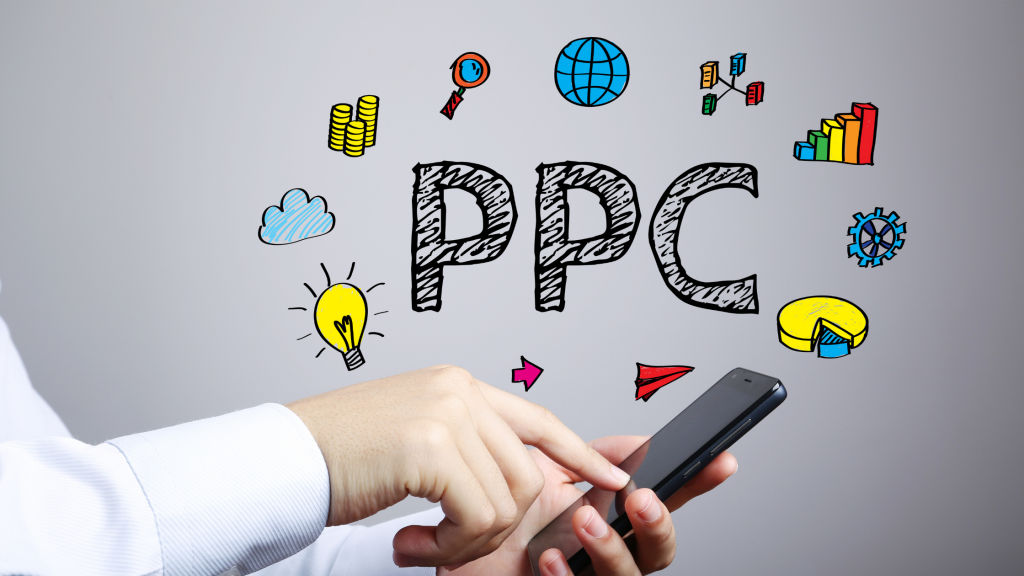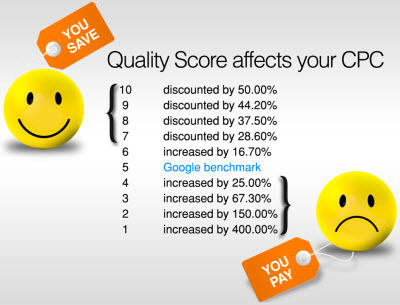May 5, 2022
7 Reasons Not to Search For Your PPC Ads

You’ve spent the time and money creating pay-per-click ads (more commonly known as PPC ads). Now you want to see if they’re working. Will users see your ads when they search the keywords you’ve targeted?
To find out, you may be tempted to see your ads for yourself on the search engine results page (SERP) through a search. However, it is crucial not to make a habit of doing this. Searching for your PPC ads can adversely affect your account in both the short and long term.
To help you fight the temptation, we dive into the different adverse effects of searching for your PPC ads.
Do Not Search for Your PPC Ads — Here’s Why
We often tell clients not to Google their advertisements. Searching for your own PPC ads can hurt your campaign performance and end up costing you more money.
A common misconception is that seeing your ads on the SERP is okay as long as you don’t click on them. Wrong. Even just seeing your ads on SERPs can damage your Google Ads campaign over time. To better unpack the risks, here are seven reasons why 1) you may not see your ads if you search for them and 2) how searching for your ads may be damaging your campaign.
The Google Algorithm Needs Time to Optimize
Remember that PPC means pay-per-click — you are paying Google for each click. The algorithm is designed to get the most clicks possible for your account based on the targeting your agency has set up. If no one clicks on your ads, Google doesn’t make money, and that’s not a business model that survives.
Google’s algorithm typically takes two weeks to optimize for your specific ad targeting correctly. The first week is for testing and the second week is to verify the data. Google watches the account for any anomalies (e.g.holidays, local or international events, extreme weather — events that can mess up the data).
During these two weeks, Google will determine which keywords are most searched, determine which results are most clicked, weigh your bid against others bidding in the same arena, and position you based on that resulting model.
If you search for your ad multiple times in the first week and don’t click your ad, you skew the algorithm, and future searches by actual customers, against you.
The Settings of the Campaign Are Targeted, Which May Not Include You
Our digital agency builds PPC campaigns that target your customer, not you. So if you don’t share similar demographics as your customer, you won’t see your ads in the SERPS.
Every campaign is specifically targeted by keyword and numerous different variables designed to give maximum impact to your budget. These variables include things like ad schedules, location, device type, demographics by age, gender, parental status, estimated household income, audiences built off of analytics data, and more. Variables are layered both as targets and exclusions, plus there may be bid adjustment variables in place.
When building ads for an upscale women’s boutique, for example, we may target users that are women over the age of 45 within a 5-mile radius around a store location. We may also target women who spend more time on mobile devices, make over a certain amount, and are most likely to come to the store between 2 and 5 pm. If you, the store owner, are a 32-year-old male 6 miles away on his desktop trying to get an ad to pop up, you will never see it.
Repeated Searching Can Decrease Your Quality Score
When users search, Google matches these queries against advertiser keywords. If there’s a match, your ad is shown with others. However, if users don’t click on an ad, it tells Google that the ad is not relevant to them, which is sort of like getting a bad reputation in Google-ville.
The lower the ad relevancy (or the worse the reputation), the lower the quality score that a particular keyword or set of keywords will have in your Google Ads account. A bad quality score will lower your placement in the SERP. Again, remember that Google Ads is a pay-per-click platform, which means they make money when ads get clicks. So, therefore, ads that don’t get clicked don’t get great placement.
When you search for your ads and don’t click them, you are telling Google that your ads are not relevant.
Quality score also impacts how much you will pay for a click, which then decreases the reach your budget may have.

Repeated Searching and Clicking Will Waste Your Ad Budget Needlessly
There is an average daily budget for every campaign. When you click on an ad, it costs money. If you have a daily budget of $25, and your average cost per click (CPC) is $5, assume you’ve just used 20% of your potential reach. Four more clicks and your ads are out of the auction because the daily budget is used up. By clicking on your ads, you deplete the daily budget and your ads could stop showing. This means you’ve wasted precious opportunities to get your ad in front of your customers.
Repeated Searching But Not Clicking Will Decrease Your Click-Through Rate
Click-Through Rate (CTR) is an important metric for PPC ads. It lets Google know how often users are clicking your ad. It is calculated by taking the number of clicks that your ad received and dividing it by impressions (the number of times your ad is shown to a user).
For example, if you had 8 clicks and 100 impressions, then your CTR would be 8% (8/100 = .08 or 8%).
An ad with high impressions and a high CTR tells Google the ad is relevant to users. Conversely, an ad with more impressions but the same amount of clicks will decrease your overall CTR. Ads with a poor CTR will be shown less often.
If you are Googling your ads and not clicking, you will negatively impact your CTR by adding more impressions without clicks.
The Ads Will Stop Showing For You As the Algorithm Adjusts Per User
Every user’s search history is unique. Google’s algorithm has improved dramatically over recent years with its ability to provide customized search results to the user based on previous searches. It does this by looking at the cookies tied to the user’s IP address and the user’s general digital footprint. If you search for recipes but tend to click on Italian ones, Google will show you more results for lasagna and fewer results for egg rolls.
When a user does not click on an ad that comes up in SERP results, it tells Google that the ad is not of interest to them. Over time, Google will eventually stop showing ads to that user or IP address. But remember — even though your ads are not showing for you, they may still be displaying for other users.
The Budget May Simply Be Exhausted For The Day
Budgets are set on a daily spend level. If you have a monthly budget of $1,000, that breaks down to about $32/day. The cost per click varies based on the type of market your business is in. If your average CPC is $3.20, that means you will get 10 clicks per day. If your average CPC is $8.00, you’ll get 4 clicks per day. (Note, these are clicks, not conversions).
Our agency works hard to make sure that the clicks your ad receives are the most qualified out there so we don’t waste budget. But, we cannot predict precisely when these clicks will happen.
As Google learns your account patterns, its algorithm will find the best time of day to put your ads in front of the people most likely to click. You may not see your ads in the SERP because earlier clicks used up your budget for the day.
Some days, four different people may be searching for your product in the morning, depleting your budget by noon. So if you search at 4pm, you may not see any ad results.
Want More PPC Advice?
The Epic Notion experts are always happy to answer questions about the hows and whys of a PPC campaign. Transparency is one of our core values, after all! If you have questions about your PPC campaigns or how we can move your ad account toward better results, shoot us a message or give us a call.




